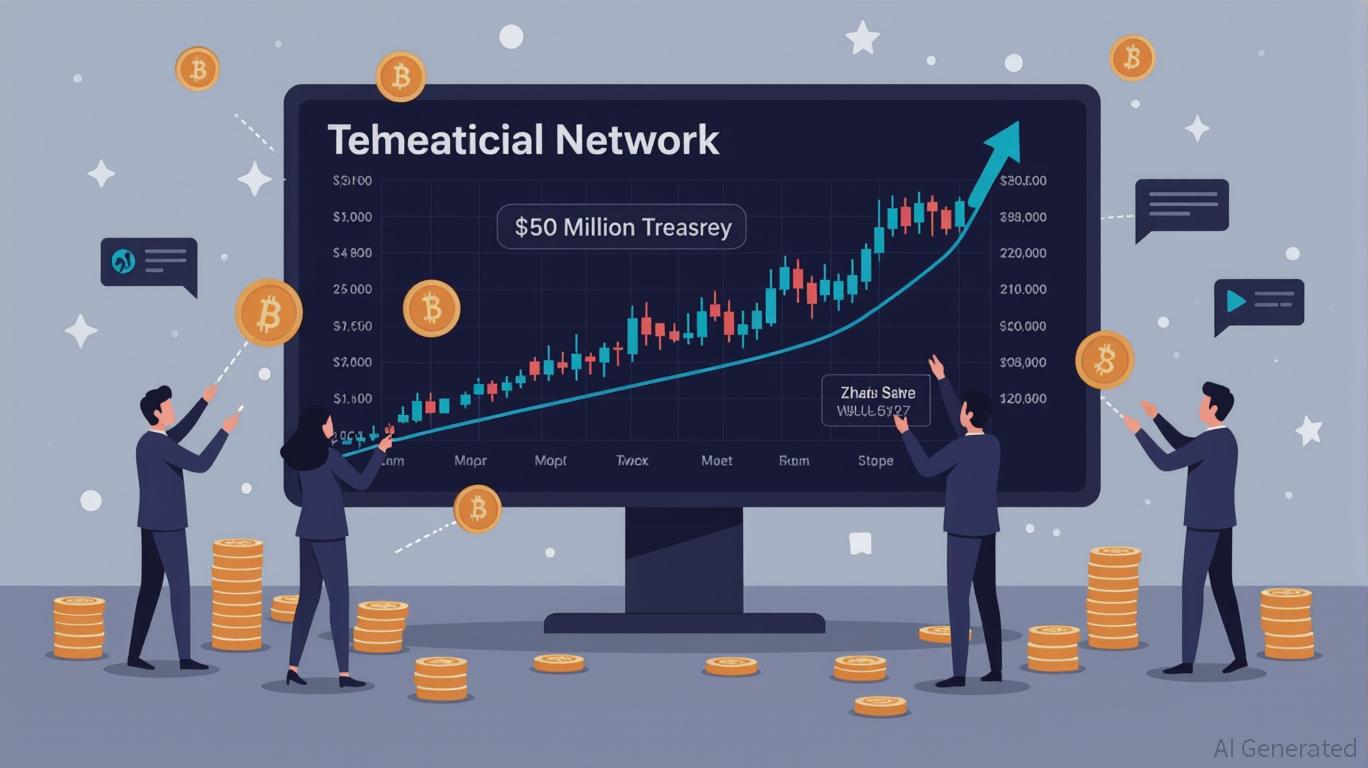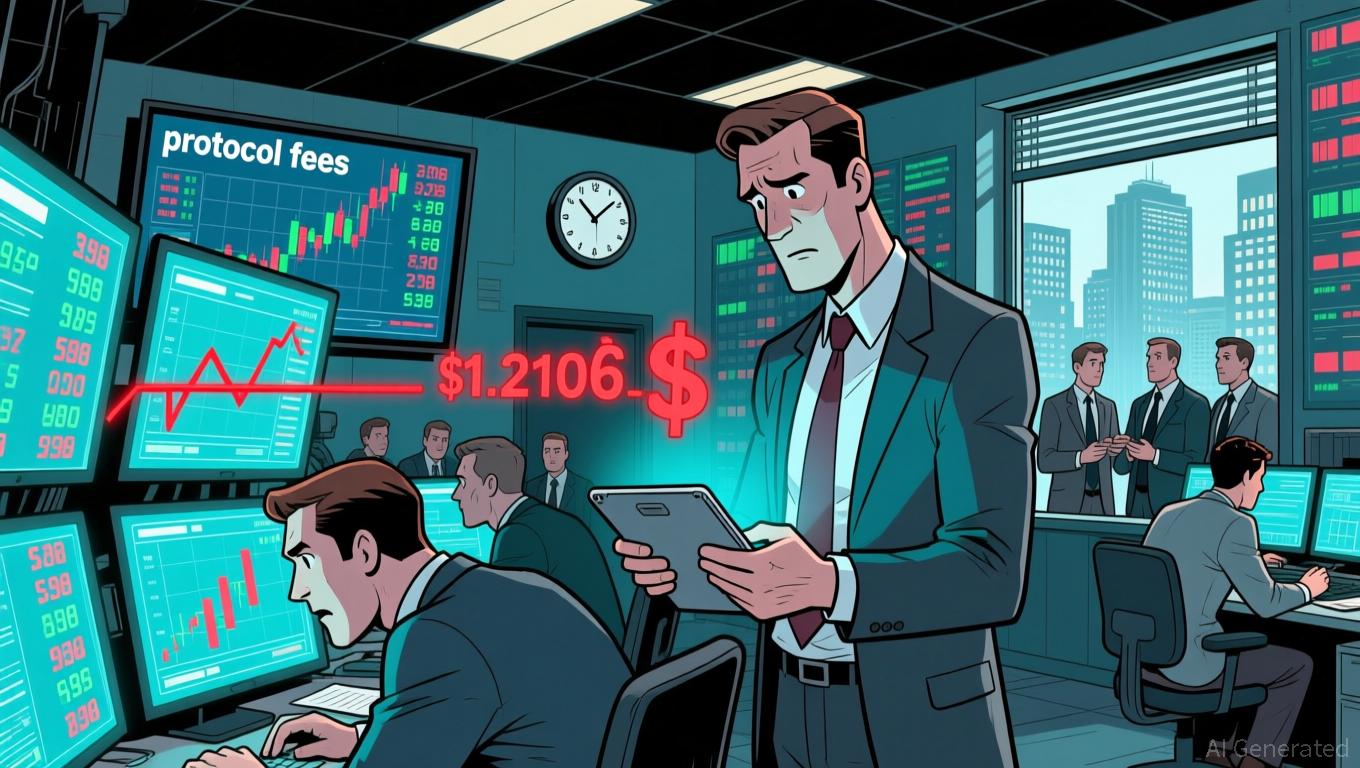The Rapid Rise of ZEC (Zcash) Value: An In-Depth Technical and Strategic Analysis
- Zcash (ZEC) surged 66.55% in November 2025, peaking at $683.14, driven by treasury initiatives, privacy innovations, and institutional investments. - Cypherpunk Technologies' $50M treasury and Zashi Wallet's privacy swaps boosted demand, while Winklevoss Capital and Grayscale added $72.88M in institutional backing. - Technical indicators show overbought conditions (RSI 94.24) but bullish momentum persists, with derivatives markets holding $1.13B in open interest and a 1.06 long-to-short ratio. - Zcash's
On-Chain Drivers: Treasury Moves and Privacy Advancements
The primary driver behind ZEC’s recent gains was the establishment of a $50 million treasury by
Adding to this momentum was the rollout of the Zashi Wallet’s swap functionality, which

Institutional Adoption: A Privacy-Driven Bitcoin Alternative
Support from major investors has further propelled ZEC’s
Grayscale’s $137 million allocation through its ZCSH trust has also reinforced ZEC’s attractiveness to institutional investors. These trends indicate that privacy coins are moving beyond niche status and are being woven into mainstream crypto portfolios,
Technical View: Momentum and Overbought Signals
Technically, ZEC’s recent action has been marked by strong momentum and signs of being overbought. The Relative Strength Index (RSI)
The Moving Average Convergence Divergence (MACD) remains bullish,
Strategic Perspective: Privacy as a Long-Term Safeguard
ZEC’s strategic edge comes from its ability to offer privacy while adapting to regulatory demands. Unlike some privacy coins that have been outright banned, Zcash’s shielded pools and institutional alliances make it both compliant and confidential. This balance is crucial as global regulators push for greater transparency but still allow space for privacy-oriented solutions.
Nevertheless, challenges persist. The RSI’s overbought reading and inconsistent price reports (such as
Summary
Zcash’s latest rally is the result of both strategic progress and institutional support. The $50 million treasury, Zashi Wallet integration, and backing from major investors have built a compelling case for privacy-focused adoption. While technical indicators point to ongoing short-term strength, Zcash’s long-term prospects will depend on its ability to uphold its distinct value in a landscape of increasing regulation. For investors, the main message is clear: privacy has become a central consideration in the evolving world of cryptocurrency, not just a niche concern.
Disclaimer: The content of this article solely reflects the author's opinion and does not represent the platform in any capacity. This article is not intended to serve as a reference for making investment decisions.
You may also like
Aster News Today: Optimism Faces Prudence: ASTER Approaches $1.21 Following RSI CEO's 16% Stake Sale
- Aster (ASTER) rose 8% toward $1.21 as Binance-backed DEX hit $3T in cumulative trading volume. - RSI CEO sold 16% stake ($11M+), raising doubts despite Q2 revenue growth (19.7%) and EPS beat. - ASTER faces mixed signals: bullish triangle pattern vs. declining fees, 50% open interest drop, and stagnant adoption. - Analysts remain divided: RSI's 22% YTD gain contrasts with ASTER's uncertain breakout potential amid waning trader enthusiasm.

The ChainOpera AI Token Crash: An Urgent Warning for Cryptocurrency Projects Powered by AI
- ChainOpera AI's COAI token collapsed 96% in late 2025, exposing systemic risks in AI-driven DeFi ecosystems. - Centralized governance (10 wallets controlled 87.9% supply) and misaligned incentives exacerbated panic selling during crises. - Technical flaws included untested AI models with 270% increased vulnerabilities and inadequate smart contract security audits. - Regulatory shifts like the GENIUS Act compounded liquidity challenges, highlighting the need for compliance-ready AI crypto projects. - Inve

How large a portion of the AI data center surge will rely on renewable energy sources?
Amazon satellite network receives a new name — and no longer emphasizes its low-cost promise